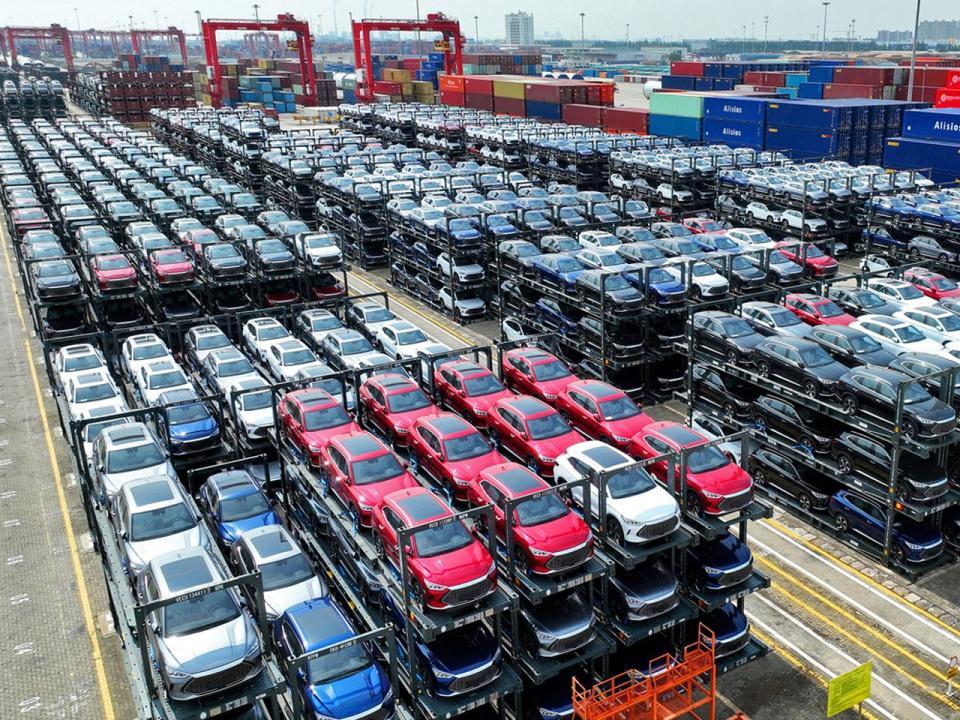Opinion: Tariffs are a poor defence of Canada’s auto industry

By Michael Nitefor
On first blush, slapping 100 per cent tariffs on Chinese electric vehicles, which at least in the past have benefited from generous state subsidies, may have appeared prudent and reasonable. In fact, it was a reflex based on weakness and barren of strategic vision. More than likely, it will trigger Chinese retaliation on the backs of our coal, oil and canola exporters and, quite possibly, inflict collateral damage on our auto sector, which is increasingly suffering the consequences of poorly considered battery and EV bets.
To ensure a competitive and sustainable auto sector, tariffs are not the way to go. For the medium- to long-term survival of our perpetually fraught auto sector we cannot out-tariff or out-subsidize the Chinese. We can only beat them with superior technology at an affordable price point. In that scenario, tariffs will not be necessary: North American vehicles will be competitive.
Ottawa’s panicky 30-day consultation on challenges to Canada’s auto industry from “unfair” Chinese imports was announced on the eve of two serious Ontario-based EV setbacks. First was Ford Motor Company’s abrupt decision in mid-July to cancel its planned $3-billion Oakville EV factory in favour of producing gas and diesel trucks. Second, barely a week later, was the stunning news of Umicore’s delay of its $2.76-billion battery materials plant in Eastern Ontario.
Adding to the turmoil, Quebec’s Swedish-backed $7-billion Northvolt EV battery plant is now undergoing a “strategic review” as global demand for EVs slows. And just days ago news broke that Ford is halting a battery plant project with SK Battery America and Korean company EcoPro, also in Quebec.
If it seems the sky is falling on batteries and EVs, that’s because it is. The recent series of cancellations and postponements is compounded by an unmistakable slackening in global EV uptake. Given this turbulent landscape, Ontario’s prospects for global leadership in developing an end-to-end EV supply chain are looking increasingly uncertain. The temptation to use tariffs to preserve a captive domestic market is understandable — but still inadvisable.
What got us into trouble in the first place was an unrelenting obsession with EVs. Oil-haters regard other hybrid options as unforgivable heresy. And now we’re paying the price for their zealotry. Mercifully, mandates can’t stop people from thinking, inventing and proposing alternate, non-battery-based propulsive systems. Toyota is deeply engaged in hydrogen propulsion. Others are working on alternate hybrid systems based on harnessing pneumatic energy — power related to pressurized air — rather than electrical energy to move a car, especially during city driving. However it’s done, the elimination of batteries from hybrids could significantly reduce their cost and weight and extend their range, key drawbacks of EVs that are behind their current stall.
We should be spreading our research and support money more widely and focusing more on what car buyers want — which, essentially, is reliability, value and not much deviation from a familiar user experience. That’s quite different from the radical transition our subsidy-fuelled policy and industrial elites believe drivers are up for.
In the throes of a market crisis and growing uncertainty around EV sustainability, the temptation to point fingers is strong. Ottawa’s current EV policy approach has failed to: produce sustainable economic outcomes, set the stage for a stable automotive future or realize its emission targets. It’s these obvious failures that have precipitated the federal government’s desperate tariff gambit.
But the blame for the EV experiment doesn’t lie solely with Ottawa. The complicity of private-sector automotive players should not be ignored. Their willing participation in the EV enterprise virtually from day one has been on full display for anybody watching. But the sector never put forward an economically credible business case for its extravagant visions.
Even a cursory understanding of Milton Friedman’s work would have ruled out from its first glimmers a project abetted by poor policy assumptions, unsustainable public financing and the misplaced notion that a century-old automotive culture could be displaced in just a decade or two by an electric model that is out of sync with market, energy, infrastructure and geopolitical realities.
Our recent EV experience is a cautionary tale for policy experts in both the public and private sectors not to lose sight of Canada’s medium- to longer-term automotive future. While there is little choice right now but to play the fraught tariff game, it is critical that we quickly recalibrate the EV vision.
Ultimately, what is required is shrewd leadership grounded in reality in both private and public sectors. Decisions need to be made within the margins of current market dynamics, technical options and the public good. Those who believed they knew better are being proved wrong as EVs flounder and hybrid sales take off.
Canada’s only hope for a sustainable auto industry delivering economically rational decarbonization is to avoid Chinese-style central planning and profligate American-style fiscal assistance and instead encourage and build on technical ingenuity that outsmarts our competitors. That hasn’t always been our approach in recent decades. It had better be over the next few.
Financial Post
Michael Nitefor is founder and president of Toronto-based Air Lab, Inc.
Bookmark our website and support our journalism: Don’t miss the business news you need to know — add financialpost.com to your bookmarks and sign up for our newsletters here.

 Yahoo Finance
Yahoo Finance 